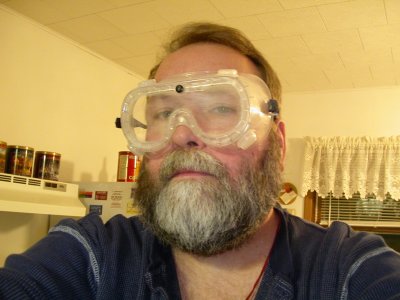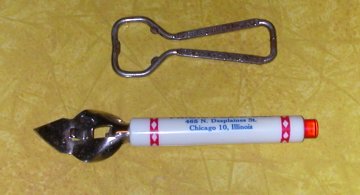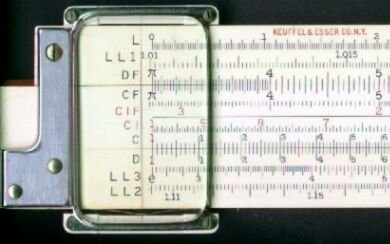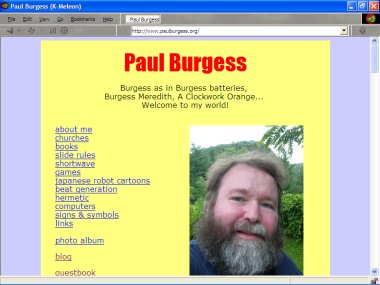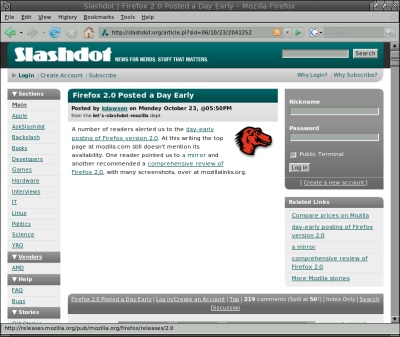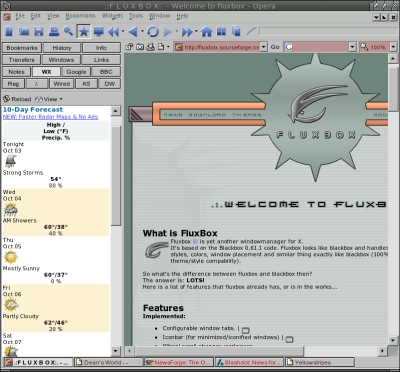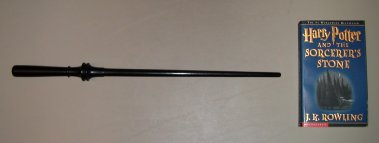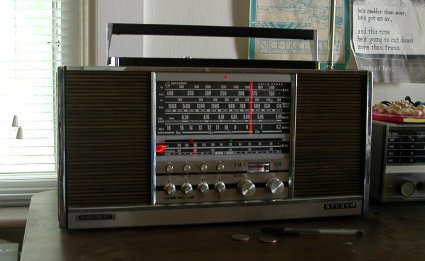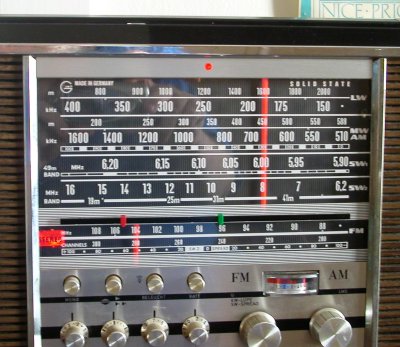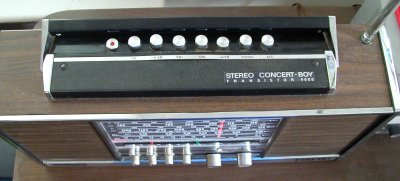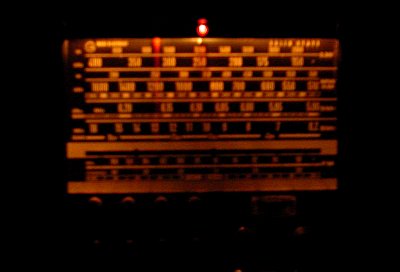Skeetchee flew through the morning sky beneath the suns of Too'keetch, and Skeetchee wheeled and turned on outstretched wings as it soared over the valley. Skeetchee had thousands of wings, and Skeetchee looked down upon the land with thousands of pairs of eyes. It was late in the fresh blue-green season, and berries were beginning to ripen on trees.
Skeetchee was looking for its morning meal, and thousands of Skeetchee's stomachs were aching with hunger.
The suns overhead shone, and each tree below cast two or three shadows. Lesser Sun was bright yellow-orange, and warm on the backs of any creature at rest. Greater Sun was ruby-red, larger in the sky, but not as blinding, and not as warm its light on the backs. Tiny Sun also shone in the northern sky, wan pale white, scarce as large as a Skizzz-bug. Tiny Sun lit up a patch of northsky even at night, this time of year.
Now Skeetchee flew up the valley beneath the suns, and a few of Skeetchee flew on ahead to scout out the way, look for any trees with ripening berries. A few of Skeetchee were now well on ahead, around a curve in the valley, and they saw trees down below, blue-green leaves the color that they get when the fruit is ripening.
But a troop of Kerrooo was already there, eating among those trees. What a few of Skeetchee saw with their eyes, all of Skeetchee perceived at a distance; and so Skeetchee wheeled and turned up a side valley instead as the scouts caught up and rejoined.
Others of Skeetchee flew on ahead to scout out this side valley. Skeetchee was thinking to one another how once there had been Rose Sun in the sky, small and pale bright rose. It was centuries since Rose Sun had retreated for an aeon to its skyly nest. No eyes of Skeetchee now looking out on Too'keetch had ever seen Rose Sun, but visual memories of Rose Sun had been passed down over the centuries, and Skeetchee could still remember how Rose Sun looked in its day. Skeetchee would always remember, until the day long ages hence when Rose Sun was due to reappear in its course.
Berries! Some of Skeetchee scouting on ahead had sighted berry-laden trees, and all of Skeetchee saw through the scouting eyes those purple berries. With thousands of wings
a-beating, Skeetchee settled down out of the sky and alighted on branches of trees, feasting on berries with thousands of beaks.
Some of Skeetchee hopped about on the ground, and drank water from puddles and ponds. These of Skeetchee were heedless in their drinking, but at the same time all-seeing; for what any of Skeetchee saw or heard or tasted or felt, all of Skeetchee saw or heard or tasted or felt. Berries on one tree were not yet ripe; after a few of Skeetchee tried them, the rest of Skeetchee didn't bother with that tree any more.
Skeetchee had flown and eaten and nested in this corner of Too'keetch for countless millennia; it could remember many comings and goings of Rose Sun over the aeons, and Skeetchee even had dim, blurred memories of a time when this valley was filled with snow in the cold seasons. Dim, blurred memories of animals that were no longer to be seen. Memories passed down in Skeetchee became soft and vague after thousands and tens of thousands of years.
Many of Skeetchee ate the berries. Some of Skeetchee drank. Some of Skeetchee hopped about and ate worms, or flew about amidst the trees and ate bugs in the air. Those who ate berries tasted cool water even as they tasted sweet berries, and those who drank water tasted sweet berries even as they drank cool water.
Greater Sun and Lesser Sun were still far from zenith; the morning was yet young. Some of Skeetchee sang: "Skeet'CHEE! Skeet'CHEE! Chitkaw! Chitkaw! Tooee! Tooee! Tooee! Tooee!" It was mostly the younger of Skeetchee who sang like this; such song could even serve for rudimentary speech, but Skeetchee found it far more effective to think to one another. The older of Skeetchee seldom sang, though there were dim, distant memories of a time, tens of thousands of years ago, when all of Skeetchee sang more freely like the younger of Skeetchee at present.
A few of Skeetchee flew further up the valley in search of more ripe berries, and were eating at trees ten or fifteen seconds' flight away when it happened: a lone Kerrooo crept through the underbrush, and sprang upon the few of isolated Skeetchee. Fear! Pain! All of Skeetchee felt it immediately, and came winging to the rescue.
By the time the rest of Skeetchee got there, the Kerrooo was chewing on one of Skeetchee. Skeetchee descended upon the Kerrooo in an angry flock, "ChitKAW! ChitKAW!", thousands of beating wings and thousands of pecking beaks. The Kerrooo howled in terror, its arms flailing, as it stumbled blindly away, bleeding from a hundred wounds. This Kerrooo might not survive; a single one of Skeetchee was only little larger than a Kerrooo's paw, but a single Kerrooo was no match for all of Skeetchee enraged at once.
Skeetchee gathered around the one of Skeetchee which had been seized by the Kerrooo. Skeetchee thought of carrying the one, wounded, back to the nests, but viewing the one from all sides with hundreds of eyes at once, and feeling what the one felt, it became evident to Skeetchee that the one was too badly wounded to survive.
The one of Skeetchee lay there on the ground, breathing hard and fast, and it thought at the others of Skeetchee. It thought its thoughts and memories at them, over and over, and the others of Skeetchee sat silently at attention and heard the thoughts and learned them. The thoughts and memories of this one of Skeetchee were little different from the thoughts and memories of any of Skeetchee, but in shaded flickerings and margins of mind there were subtle holographic differences, and it was important that these be learned and remembered by Skeetchee.
Then Skeetchee dove by the dozens at the wounded one of Skeetchee— pecking, pecking, pecking!— and all felt the pain which flared up briefly before it went out. Skeetchee continued to swarm upon the wounded one and devour it until only the bones and a few stray feathers remained: it would not do for a wandering Kerrooo to find the body, and acquire a taste for Skeetchee-flesh.
When Skeetchee was finished, it took the bones in its beaks and claws and dropped them in the swift brook. Some of the younger of Skeetchee went, "Skeet-CHEE! Skeet-CHEE! Skeet-CHEE!"
After Skeetchee had gotten its fill of berries and worms and water, it set about gathering things to take back to the nests. Many of Skeetchee caught worms to take back for the hatchlings of Skeetchee. Some of Skeetchee took berries in their beaks to take back for the mothers of Skeetchee, who were watching over the nestlings. Some of Skeetchee gathered grass and twigs and mud to take back for building and repair.
Greater Sun and Lesser Sun were now higher in the sky, as Skeetchee flew with thousands of wings back down the valley toward the cliff and its nests. On the way, Skeetchee saw many of Kit'teeet winging along over the other side of the valley. Skeetchee and Kit'teeet thought greetings at one another from afar, but Skeetchee kept its distance from Kit'teeet: at other times of the year Skeetchee might exchange a few of Skeetchee for a few of Kit'teeet, but with the young hatching and hungry there would be no time now, at the blue-green season, for the painstaking thought-work which would go into assimilating a few of Kit'teeet into Skeetchee.
Up along the bluff Skeetchee flew, to the sheer cliff wall where the hundreds of nests of Skeetchee were built into clefts in the sheer rock wall. Suns-hardened mud nests, grass and twigs interwoven in mud baked pottery-hard over the course of hundreds of dry seasons. Nests linked together in clusters up and down deep rock clefts.
Some of Skeetchee took the food they had brought back, and fed the hatchlings of Skeetchee, and the mothers of Skeetchee who had stayed here to watch over the young. They also fed the elders of Skeetchee, who were too old and infirm to go flying forth any more, elders who now stayed in the nests thinking, thinking deeply to the young and to all of Skeetchee, pondering ancient memories and doing important thought-work; for what one of Skeetchee thought and remembered, was remembered and thought by all of Skeetchee.
Some of Skeetchee inspected the seeds in the baked-mud granaries, to see that the seeds were safe and dry. Some of Skeetchee inspected the small rock pools and cisterns amidst the clefts, where rain water might collect and be stored against the dry season. Some of Skeetchee inspected the herbs which grew on a rock landing half way up the cliff, herbs planted and carefully tended by Skeetchee to aid the sick and ailing of Skeetchee.
Now clouds covered first Lesser Sun, then Greater Sun. As for Tiny Sun, to the north, it too had vanished behind clouds. Rain would fall on the face of Too'keetch before noon. Off to the west, lightning was already flickering. Distant thunder came rumbling from up the valley. Skeetchee retreated into the hundreds of rock-hard baked-mud nests, crawling into nest entrances beneath shiny black pieces of obsidian set into the mud above each nest entrance as skyly decoration. Something about a thunderstorm cast a vague confusion of mind over Skeetchee, and made it harder for Skeetchee to think to one another. Better to huddle together in the nests, and wait it out.
Up and down the cliff, from nest to nest, what one of Skeetchee saw and heard and thought and felt, all of Skeetchee saw and heard and thought and felt, now with a soft edge of blurred confusion brought on by electricity and crackling static of nearing thunderstorm. Thousands of beaks tucked into thousands of feathered breasts, and all felt it. Settling down. Thousands of pairs of eyes drifting lazily shut. Thousands of little minds, holographic fragments of one vast mind, like thousands of glimmering facets of one great jewel, all gathering together into one shared dreaming-time.
All of Skeetchee dreamed together in the nests, dreaming one vast common dream which was both like and unlike Too'keetch. In the dream-world there was skyly Blue Wheel Sun, blue with spokes of white, like never had been seen in the sky of Too'keetch. And the big gentle black and russet leaf-eaters, like hadn't been seen in the valleys of Too'keetch in tens of thousands of years. And Skeetchee sang to one another in the dreaming-time, "Skeet'CHEE! Skeet'CHEE! Chitkaw! Chitkaw! Tooee! Tooee! Tooee! Tooee!"
Labels: fiction
